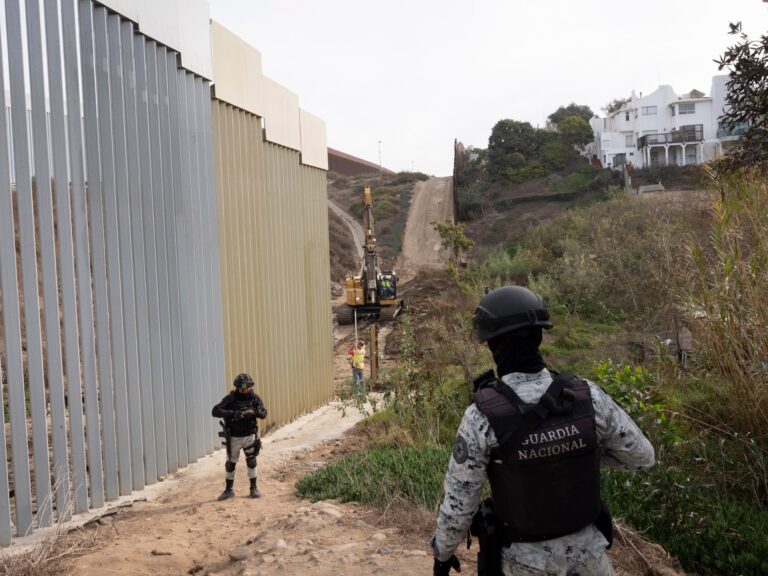The deployment is part of President Trump’s executive action to declare a “national emergency” on the U.S. southern border.
The U.S. military has begun deploying 1,500 active-duty troops to the southern border with Mexico as part of President Donald Trump’s long-promised immigration crackdown.
The White House confirmed the troop movement on Wednesday, but details of the order have not yet been released.
Officials told US media that the military personnel involved included 500 Marines. They are not expected to perform law enforcement duties as part of their border role.
The deployment of troops was widely expected, as immigration was a feature of Trump’s second-term campaign.
Shortly after taking the oath of office on Monday, the Republican leader signed an executive order declaring a “national emergency” at the border, repeating some of the fiery rhetoric he had used during his campaign.
“The sovereignty of the United States is under attack,” the executive order reads. “This invasion has caused widespread chaos and suffering in our country over the past four years.”
The order included a provision for sending troops to “support the Secretary of Homeland Security’s efforts to obtain full operational control of the southern border.”
It also called for the installation of additional physical barriers and the use of unmanned aerial surveillance.
President Trump’s communications team was quick to praise Wednesday’s deployment of troops as a fulfillment of a promise made during the election season.
“This is what President Trump campaigned on,” White House press secretary Caroline Leavitt said.
“The American people have been waiting for a time like this where the Department of Defense actually takes homeland security seriously.”
An estimated 2,500 National Guard and Reserve troops are already at the border.
Additionally, U.S. Customs and Border Protection has more than 45,000 employees. As of fiscal year 2023, 19,104 of these personnel are Border Patrol agents guarding areas between official ports of entry.
But immigration advocates worry that an increased military presence at the border could impede legitimate asylum claims or lead to the use of military tactics against civilians.
However, President Trump has argued that given the number of illegal immigrants, a military response is necessary.
He also regularly confuses immigration with increased crime, but this is not supported by statistics. Studies have repeatedly shown that illegal aliens in the United States commit crimes, including violent crimes, at much lower rates than native-born citizens.
Still, Trump has used examples like 22-year-old nursing student Laken Riley to advance his proposals.
In February 2024, Riley was murdered while jogging at the University of Georgia, and an undocumented Venezuelan man was ultimately convicted of her murder.
On Wednesday, the House passed the Laken Riley Act, named in her honor.
The law requires Immigration and Customs Enforcement (ICE) to detain illegal aliens who are arrested or charged with crimes such as theft or robbery. The bill has already passed the Senate and now goes to Trump’s desk where he is expected to sign it. This is the administration’s first major bill.
But human rights activists warn that the bill could violate due process rights for defendants, as it would only require those targeted to be charged rather than convicted.

